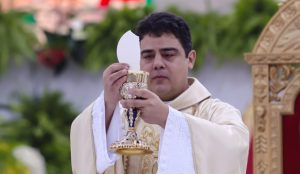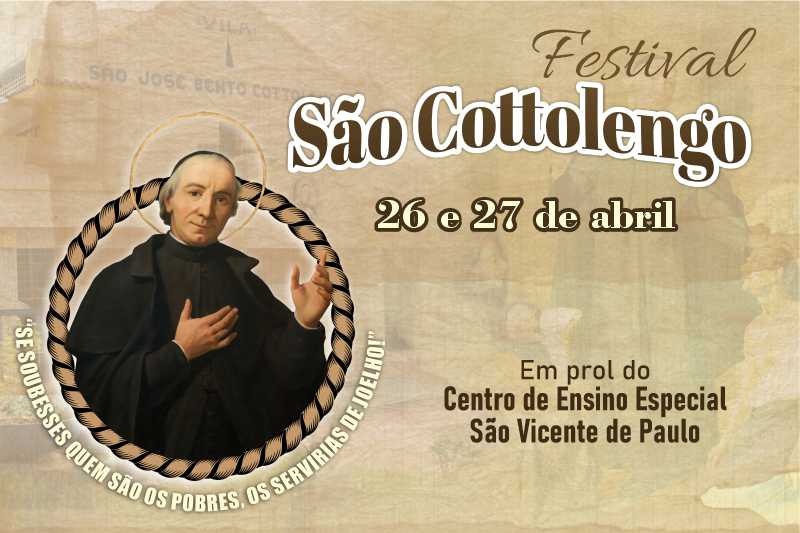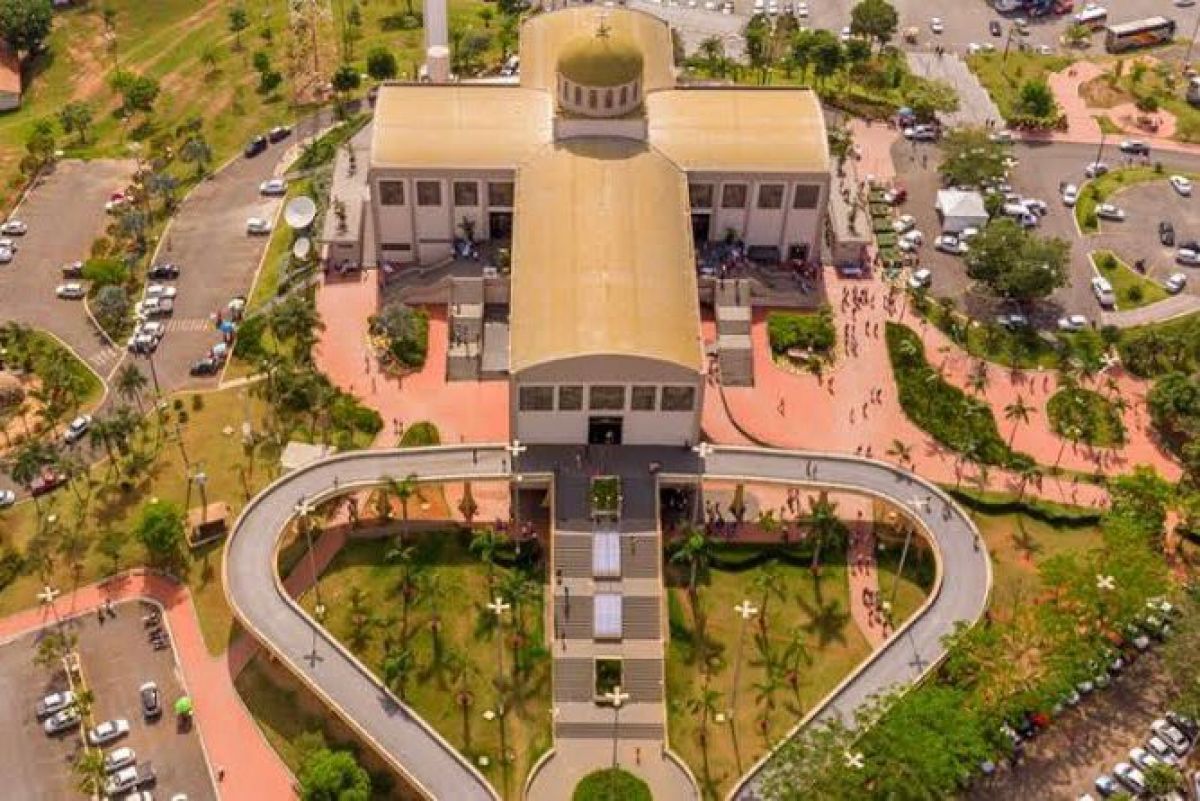[:en]It is in the Holy Communion that Jesus is alive and present among Christians. [:es]Es en la Santísima Eucaristía que Jesús está vivo y se hace presente entre los cristianos. [:]
[:en] The Eucharist is one of the Sacraments of the Catholic Church Also known as the Blessed Sacrament, it represents the true blood of Christ, his soul, and divinity. “Occurs through the transubstantiation of bread and wine, that are properly the subjects of this Sacrament, into the body and blood of Jesus Christ,” emphasized Fr. Braulio Maria Pereira, a Redemptorist Missionary.
The Eucharist is one of the Sacraments of the Catholic Church Also known as the Blessed Sacrament, it represents the true blood of Christ, his soul, and divinity. “Occurs through the transubstantiation of bread and wine, that are properly the subjects of this Sacrament, into the body and blood of Jesus Christ,” emphasized Fr. Braulio Maria Pereira, a Redemptorist Missionary.
It is in the Holy Communion that Jesus is alive and present among Christians. The eucharistic sacrifice recalls of the death on and resurrection of the Lord. There is no age to receive communion. Some Popes, especially Saint Pius X, claimed that children should receive the Eucharist as soon as possible. As long as children were aware of the difference between the ordinary and the eucharistic bread. It is the body of Christ in the attempt of making children’s soul being inhabited by a special grace as early as possible that is Christ’s body in a pure state.
At the time of the celebration of the eucharist, under the species of bread and wine, Christ offers himself to God, the Father, and gives himself as spiritual food to the faithful. According to the catechist and Eucharistic minister, Paulo Victor Resende Brilliant, what we need is to give to each person what they need. “We need to reach them and respect their limitations and capabilities so that when they receive the Sacrament may they be mature in fact and be totally aware of what they are receiving. It is not only a graduation. It means a true experience with Jesus Christ,” he said.
 Anyone who receives the Eucharist is able to receive the Body of Christ. Family members are of great importance in the process of catechesis. “My whole family is catholic, christian, especially my grandmother and mother, who encouraged me to take catechesis and it was very important to me. I found Jesus! Everything that I have learned here was an ingredient to change my life and my mind in certain aspects. So, it was very important,” said Gabriel Rodrigues Ribeiro Rosa, 13 years old, who is taking the catechetical course.
Anyone who receives the Eucharist is able to receive the Body of Christ. Family members are of great importance in the process of catechesis. “My whole family is catholic, christian, especially my grandmother and mother, who encouraged me to take catechesis and it was very important to me. I found Jesus! Everything that I have learned here was an ingredient to change my life and my mind in certain aspects. So, it was very important,” said Gabriel Rodrigues Ribeiro Rosa, 13 years old, who is taking the catechetical course.
Fernanda Karine, 14 years old, also learned the customs of catholics from her mother and the grandmother. “They always taught me all about Jesus Christ, about God. They sat with me in the evening to read the Bible and decided to register me in the catechetical course so that I could learn more about Jesus Christ,” she said.
 According to Paulo Vitor, the Eucharist is not a representation of the blood and body of Christ, it is the very body and blood of Christ, which manifests itself in the consecration during the Holy Mass. “The Eucharist is essential in the life of every Christian, especially in the life of a catholic Christian. We are Christians then we follow Jesus Christ, who is present in the Eucharist. A christian who does not seek the Eucharist cannot call himself a true Christian because it is in the Eucharist that God truly is. So, it is a source of joy and sustenance for all of us,” said the catechist.
According to Paulo Vitor, the Eucharist is not a representation of the blood and body of Christ, it is the very body and blood of Christ, which manifests itself in the consecration during the Holy Mass. “The Eucharist is essential in the life of every Christian, especially in the life of a catholic Christian. We are Christians then we follow Jesus Christ, who is present in the Eucharist. A christian who does not seek the Eucharist cannot call himself a true Christian because it is in the Eucharist that God truly is. So, it is a source of joy and sustenance for all of us,” said the catechist.
Karyne Gonçalves Matos, 15 years old, told that she was already a Christian but it was in the catechesis that she deepened her knowledge: “Before I knew Christ, but with the catechesis I was able to understand who is Christ indeed, what represents our faith, the true meaning of some of the things that I did not know about the mass,”.
Before receiving the body of Christ for the first time, one should pass through the theoretical learning of the Word of God. “The period of catechesis lasts at least two years. There are at least two liturgical cycles, but we have to acknowledge that each young person, each adult or child that is in the evangelization have their own reality. Thus, we need to reach this reality. Some have a greater maturity than others, for instance, some participate in Church from very ealry and are already ready,” said the catechist.

Fr. Braulio states that the person should start the preparation from age 7. “Wha cannot happen is to receive the Eucharist in a state of mortal sin. One must confess and regret any type of mortal sin. It is a requirement of the Church so that one could receive the body of Christ,” he claimed.
Receiving the Sacrament of the Eucharist is to be able to partake of the feast of the sacred in which we receive the food for our souls. It is the living Christ, the true God, the true man, His body, blood, soul, and divinity.
[:es] Entre los sacramentos de la Iglesia Católica está el sacramento de la Eucaristía. También llamado como el Santísimo Sacramento, que representa la verdadera sangre de Cristo, su alma y su divinidad. “Ocurre a través de la transubstanciación del pan y del vino, que son propiamente las materias de este Sacramento, que se transforman en el cuerpo y la sangre de Jesucristo”, resaltó el Misionero Redentorista, padre Braulio Maria Pereira.
Entre los sacramentos de la Iglesia Católica está el sacramento de la Eucaristía. También llamado como el Santísimo Sacramento, que representa la verdadera sangre de Cristo, su alma y su divinidad. “Ocurre a través de la transubstanciación del pan y del vino, que son propiamente las materias de este Sacramento, que se transforman en el cuerpo y la sangre de Jesucristo”, resaltó el Misionero Redentorista, padre Braulio Maria Pereira.
Es en la Santísima Eucaristía que Jesús está vivo y se hace presente. El sacrificio eucarístico es la memoria de la muerte y resurrección del Señor, por la cual se recuerda su sacrificio en la cruz. “Para celebrar el sacramento de la Eucaristía no existe propiamente una edad. Algunos Papas, especialmente San Pío X, insistieron para que los niños recibieran la Eucaristía cuanto antes. Bastaba con que los niños supieran diferenciar entre el pan común y el pan eucarístico, o sea, el propio cuerpo de Cristo, en un intento de hacer que el alma de los niños cada vez más temprano pudiera ser habitada por una gracia especial, que es el cuerpo de Cristo aún en el estado de pureza”, agregó el sacerdote.
 En el momento de la celebración de la eucaristía, ante el pan y el vino, Cristo se ofrece a Dios Padre y se da como alimento espiritual a los fieles. Según el catequista y ministro de la Eucaristía, Paulo Victor de Resende Brilhante, lo que necesitamos es ofrecer a cada persona lo que necesita y de la manera que ella necesita. “Tenemos que alcanzar la persona de acuerdo con sus limitaciones y capacidades, para que cuando reciba el sacramento sea madura, comprendiendo aquello que está recibiendo, para que no sea sólo una graduación, necesita de hecho, una experiencia con la persona que es Jesucristo”, dijo.
En el momento de la celebración de la eucaristía, ante el pan y el vino, Cristo se ofrece a Dios Padre y se da como alimento espiritual a los fieles. Según el catequista y ministro de la Eucaristía, Paulo Victor de Resende Brilhante, lo que necesitamos es ofrecer a cada persona lo que necesita y de la manera que ella necesita. “Tenemos que alcanzar la persona de acuerdo con sus limitaciones y capacidades, para que cuando reciba el sacramento sea madura, comprendiendo aquello que está recibiendo, para que no sea sólo una graduación, necesita de hecho, una experiencia con la persona que es Jesucristo”, dijo.
Quien recibe la Eucaristía está apto para recibir el Cuerpo de Cristo. Los familiares son grandes incentivadores en el proceso de la catequesis. “Toda mi familia es católica, especialmente mi abuela y madre, que me animaron a entrar en la catequesis, algo que fue muy importante para mí. Encontré a Jesús! Todo lo que he aprendido aquí ha cambiado mi forma de pensar, mejoro mi vida. Entonces, fue muy importante”, afirmó el catequizando Gabriel Rodrigues Ribeiro Rosa de13 años.
Fernanda Karine de 14 años, también aprendió las costumbres católicas con su madre y abuela. “Siempre me enseñaron todo sobre Jesucristo y sobre Dios, se sentaban conmigo por la noche, para leer la Biblia. Decidieron inscribirme en la catequesis, para que aprendiera más acerca de Jesucristo”, afirmó.
 Según Paulo Vitor, la Eucaristía no es la representación de la sangre y cuerpo de Cristo, ella es el propio cuerpo y la sangre de Cristo, que se manifiesta en la consagración durante la Santa Misa. “La Eucaristía es fundamental en la vida de todo cristiano, sobre todo en la vida del cristiano católico. Nosotros como cristianos seguimos a Jesucristo, que está presente en la Eucaristía. Un cristiano que no busca la Eucaristía, no puede llamarse un cristiano de verdad, porque allí está nuestro Dios verdaderamente. Entonces, ella es fuente de alegría y sustento para todos nosotros”, destacó el catequista.
Según Paulo Vitor, la Eucaristía no es la representación de la sangre y cuerpo de Cristo, ella es el propio cuerpo y la sangre de Cristo, que se manifiesta en la consagración durante la Santa Misa. “La Eucaristía es fundamental en la vida de todo cristiano, sobre todo en la vida del cristiano católico. Nosotros como cristianos seguimos a Jesucristo, que está presente en la Eucaristía. Un cristiano que no busca la Eucaristía, no puede llamarse un cristiano de verdad, porque allí está nuestro Dios verdaderamente. Entonces, ella es fuente de alegría y sustento para todos nosotros”, destacó el catequista.
Karyne Gonçalves Matos de 15 años, contó que ya era cristiana, pero fue en la catequesis que ella profundizó sus conocimientos: “Yo ya conocía a Cristo, pero fue con la catequesis que entendí lo que es el Cristo, que representa nuestra fe y el verdadero significado de algunas cosas de la misa que yo no conocía”.
Antes de recibir el cuerpo de Cristo por primera vez, lo ideal es que el fiel pase por el período de aprendizaje teórico sobre la Palabra de Dios. “El período de catequesis es de mínimo dos años. Son por lo menos dos ciclos litúrgicos, pero reconocemos que cada adulto, joven o niño que está en la evangelización tienen una realidad específica. Entonces, tenemos que alcanzar esa realidad. Algunos tienen una madurez mayor, ya participan desde pequeños y están listos comenzando desde cero, porque la catequesis no tiene un tiempo adecuado”, subrayó el catequista.

El padre Braulio afirma que la persona debe iniciar la preparación con más de siete años de edad. “Si eso no sucede, así la persona conozca lo que es el Cuerpo de Cristo, no puede recibirlo en un estado de pecado. La persona necesita antes confesarse y arrepentirse de cualquier tipo de pecado. Esta es una exigencia de la Iglesia para que alguien reciba el Cuerpo de Cristo”, afirmó.
Recibir el sacramento de la Eucaristía es poder participar del banquete sagrado en el que recibimos el alimento de nuestras almas. Es el propio Jesucristo vivo, el verdadero Dios, el verdadero hombre, Su cuerpo, sangre, alma y divinidad.
[:]



 DOAÇÕES
DOAÇÕES





